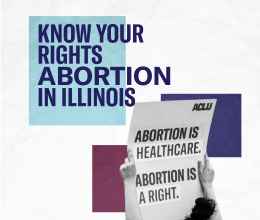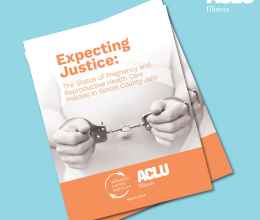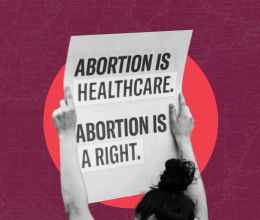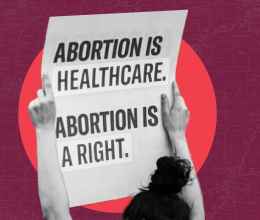Among this week's veto session activities, we're partnering with Chicago Legal Advocacy for Incarcerated Mothers (CLAIM) in a coalition effort to end the use of restraints on pregnant prisoners - HB 1958. We're also working, in collaboration with the AIDS Foundation of Chicago, on a lifesaving measure that would limit prosecution of individuals who seek medical help during a medical emergency related to a drug overdose - SB 1701.
HB 1958: BANS THE USE OF RESTRAINTS ON PREGNANT PRISONERS
Chief Bill Sponsors: House: Representative Robin Gabel Senate: Senator Toi Hutchinson
Background
In 2000, Illinois became the first state to ban shackling of pregnant prisoners during labor. The vote was unanimous in the House and Senate. In the 11 years since, there have been numerous examples of pregnant prisoners shackled during labor.
Example of Why We Need This Law
In 2006, a young, pregnant, woman was arrested for possession of a controlled substance. She was a approved for a residential treatment facility program where she was required to wear an electronic ankle monitor. She was never categorized as a flight risk, and while in the program could go with a counselor to church or the store. Even though she was only required to wear an ankle monitor at the program, she was placed in leg irons and a chain belt with handcuffs attached during her periodic court appearances. Later into her pregnancy she was required to walk up an incline from a holding cell to the courtroom, scared that with her legs and hands shackled, and her center of balance off, she might fall. In her 8th month, she was admitted to the hospital and though she still had the ankle monitor on, the officer proceed to shackle her left ankle and wrist to the bed. At the change of each shift, the new nurse would ask about her crime, and when told that she was in for a non-violent offensive, the nurse would ask the officer to remove the restraints - each time he refused. The officer was in the room watching the NBA finals for the duration of the labor, even while her feet were in stirrups and the baby was crowning. She repeatedly asked him to leave to give her some privacy, but he never did. And even though he was in the room, and she was never deemed a flight risk, she was shackled by her arm and leg to the bed throughout the labor and birth of her child. Unfortunately, what happened to this woman above is not a one time occurrence.
HB 1958 can help address this unfortunate scenario.
This bill, which only applies to Cook County:
- Clarifies and strengthens the law to protect the life and health of mothers and infants.
- Defines "restraints" and "labor" - there has been some confusion as to what is meant by those terms, these definitions will increase clarity and make the existing law more meaningful.
- Bans the use of restraints for prisoners who are pregnant and in postpartum recovery - there are 2 exceptions to the ban on restraints: (1) restraints can be allowed if an individualized determination that a woman poses a substantial flight risk or an extraordinary circumstance dictates security restraints has been made; or (2) qualified health personnel orders therapeutic restraints for a women who is a danger because of a psychological or medical disorder.
- Requires an officer to wait outside of the hospital room after conducting a safety inspection. The officer can conduct periodic safety assessments throughout the delivery, but cannot sit in the room while the woman is in labor.
- Requires annual reporting by the Corrections of instances when pregnant inmates are restrained
2011 Spring Session: Passed out of the House in May
Votes: 86 Yes / 30 No
2011 Veto Session Senate Criminal Law Committee Hearing Tuesday, November 8 at 2:40 p.m.
Want to make sure you have the most up-to-date on the bill? Click HERE!
Additional Information On HB 1958 (Ban Restraints On Pregnant Prisoners)
CLAIM HB 1958 Factsheet
Reproductive Rights Attorney Discusses the Need for HB 1958
The Emergency Medical Services Act (SB 1701): LIMITS PROSECUTION OF INDIVIDUALS SEEKING EMERGENCY MEDICAL HELP DURING A DRUG OVERDOSE
VETO SESSION UPDATE: The Emergency Medical Services Act - SB 1701 Passed in the House! Click HERE to find out how your Representative voted on this bill. Keep reading to learn more about the Emergency Medical Services Act and why the Governor needs to sign this important bill.
Chief Bill Sponsors: House - Representative Kelly Cassidy Senate: Senator Ira Silverstein
Why We Need SB 1701 (Emergency Medical Services Act)
Fatal overdoses are a deadly problem in Illinois.
Illinois is one of sixteen states where more people die of drug overdoses than car accidents. In Will and McHenry Counties, there has been a 100% increase in heroin related deaths between 2006 and 2008. In 2009, 800 people in Cook County died because of an accidental drug overdose. Unfortunately, because friends and family members may fear arrest they don't call 911 or attempt to get medical help; instead, they flee the scene or leave the body at an emergency room door.
SB 1701 can save lives.
This bill:
- Provides limited immunity from prosecution for drug possession for a person seeking emergency medical assistance after an overdose OR for a person who calls on behalf of someone experiencing a drug overdose.
- Immunity is offered only if small amounts of drugs are found. For example, less than 3 grams of heroin or cocaine.
7 states (Connecticut, Maryland, New Jersey, New Mexico, New York, Washington, and Utah) and 100 colleges and universities have implemented a similar law or policy -- these policies do not increase drug use. (Cite: Lewis, D.K., Marhcell, T.C. (2006) Safety First: A Medical Amnesty Approach to Alcohol Poisoning at a U.S. University International Journal of Drug Policy, 17 (4), 329-338. )
Status of SB 1701
2011 Spring Session: Passed out of the Senate unanimously in April
Votes: 57 Yes / 0 No
2011 Veto Session: Needs to be voted out of the house.
Want to make sure you have the most up-to-date on this bill? Click Here!
Additional Information On SB 1701 (The Emergency Medical Services Act)
SB 1701 Factsheet
Snapshot of drug overdose death rates in the Collar Counties
Newspaper Articles on SB 1701





